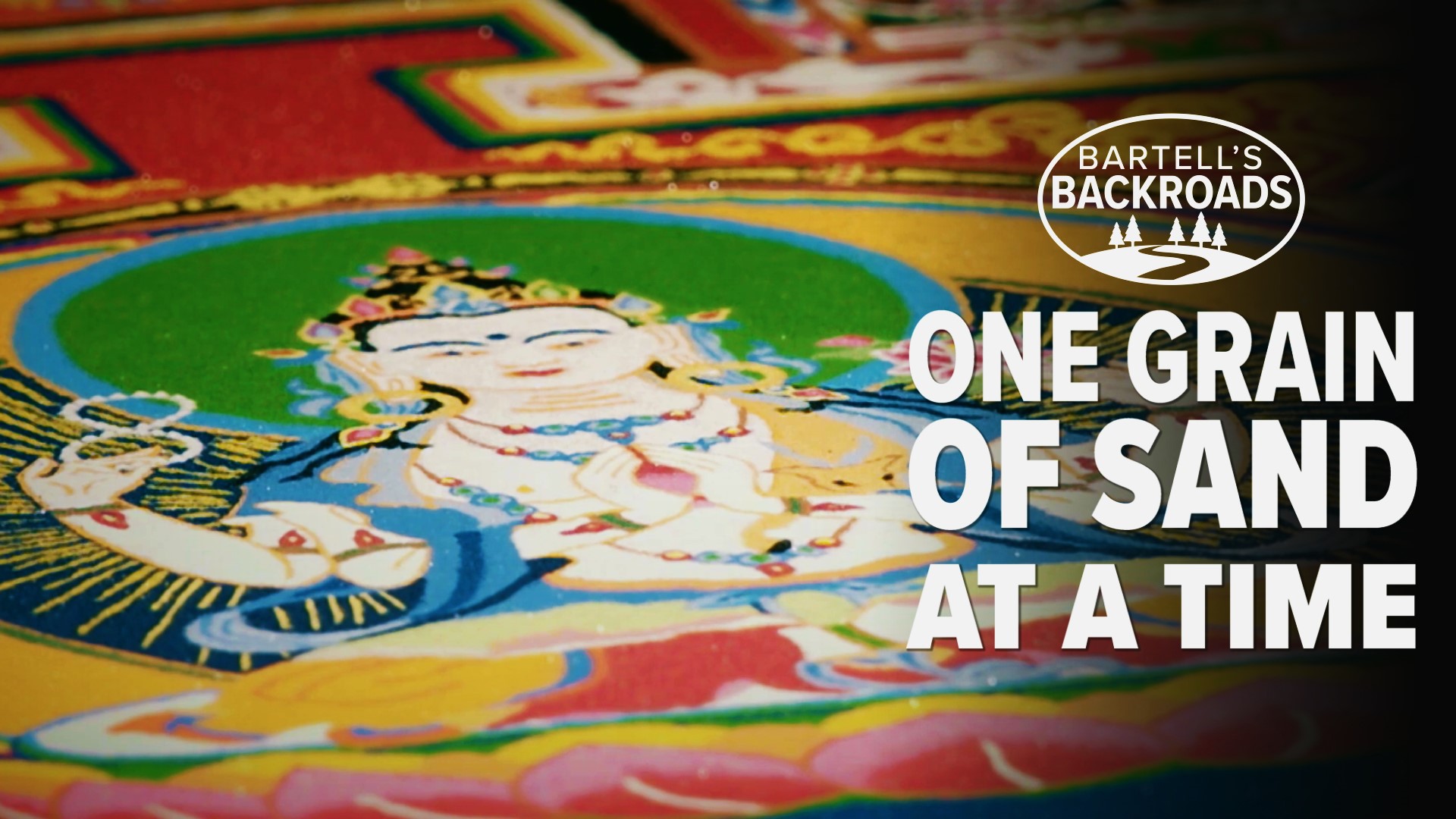CAMERON PARK, Calif. — One grain of sand at a time. That's what it takes to make traditional sand mandala. About a dozen monks with the Gaden Shartse Monastery are on an west coast tour to create art rarely seen by Americans.
The sand mandala is a ritual rich in symbolism, often portraying Buddhist entities. At the start of the new year, the monks began a 10-by-10-foot sand mandala of Chenrezig, the deity of compassion. Each monk devoted six to 12 hours a day for the past 12 days to compete it.
Shanu is one of the interpreters for the Gaden Shartse Monastery. He says the sand mandala has a deeper meaning than just the art.
"It symbolizes impermanence. The Buddhist believes that everything that lives must die," Shanu said.


Each grain of sand carefully planned, meticulously blended, and painstakingly placed until the mandala is finally completed. There is no glue holding this sand to the table, no way to permanently preserve its beauty.
Once the sand mandala is completed, the monks perform a dissolution ceremony. The sand is swept up in a pile and placed into a bowl.
"The message, we have to take from the sand mandala, is to each and everything — my clothes, my beads — one day it has to go," said Shanu.
The monks believe nothing in life is permanent. That is the message and it’s a difficult message to learn, but the sand does not go to waste.
"We are going to distribute a little sand to the public so that way they can bless their home or land," Shanu said.
For a full schedule of the monks' tour, click here.
Continue the conversation with John on Facebook.
________________________________________________________________
WATCH MORE: Who is Kamala Harris?

